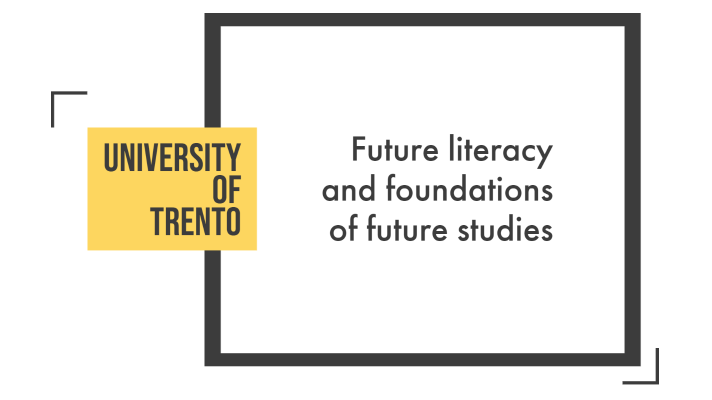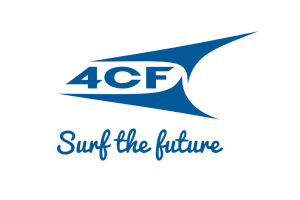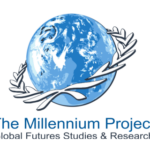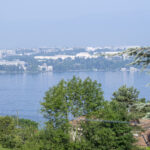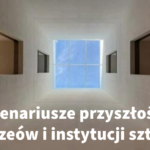W dniach od 10 do 14 października odbyła się zimowa edycja programu „Future literacy and foundations of future studies” na Uniwersytecie we włoskim Trento. Inicjatorem tego wydarzenia był profesor Roberto Poli, UNESCO Chair in Anticipatory Systems, University of Trento. W wydarzeniu wzięło udział 30 pasjonatów studiów nad przyszłością z różnych stron świata. Są planowane kolejne edycje, w 2023 r w Sofii w Bułgarii, data jeszcze nie jest znana.
W programie tego wydarzenia znalazły się 4 tematy przewodnie: Anticipatory assumptions in decision-making. Case-based Futures Literacy theory: system reproduction prowadzony przez Kwamou Eva Feukeu, Futures Literacy Project Officer at UNESCO, Paris, Reading Chance Aloud: Futures Literacy as a Capacity for Decolonizing Futures (and Divination) wykłady prowadzone przez Roumiana Gotseva, Founder and Managing Director of the Center for Strategic Foresight, Sofia BG, trzecim tematem był: Living Complexity by Distinguishing Perception and Choice, Repetition an Difference prowadzony przez Riel Miller, Former Head of Foresight and Futures Literacy, UNESCO, Paris oraz czwarty temat: Through the looking glass: a fourfold introduction to FL and FS wyłożony przez gospodarza spotkania profesora Roberto Poli, UNESCO Chair in Anticipatory Systems, University of Trento.
Podczas tygodnia w Trento był czas aby zgłębiać temat studiów nad przyszłością ale również na integrację tego środowiska w malowniczym włoskim miasteczku.
Kwamou Eva Feukeu – Futures Literacy Project Officer at UNESCO, Paris
Anticipatory assumptions in decision-making. Case-based Futures Literacy theory: system reproduction
- Case-based Futures Literacy theory: system reproduction
- Futures Literacy design principles
- Futures Literacy process simulation
- Reframing the imagination
Roumiana Gotseva – Founder and Managing Director of the Center for Strategic Foresight – Sofia BG
Reading Chance Aloud: Futures Literacy as a Capacity for Decolonizing Futures (and Divination)
- Futures Literacy and the ontological turn: critical post-humanisms, new materialisms and post-anthropocentrism
- Speculative temporalities for worlds-to-come
- Anticipation for emergence: being worthy of our times
- Collective imaginings: positive difference, negative capability, and the making of kin.
Riel Miller – Former Head of Foresight and Futures Literacy, UNESCO, Paris
Living Complexity by Distinguishing Perception and Choice, Repetition and Difference
- Exploring the Futures Literacy Framework (FLF) – Anticipation and Imagination
- Detecting and Inventing Anticipatory Assumptions – Generating Evidence of the Relevance of the FLF
- Origins and Sources of Imagined Futures – Framing, Narrative and Anticipatory Systems and Processes
- Futures Literacy in Practice – Exploring Impacts and Design Principles
Roberto Poli – UNESCO Chair in Anticipatory Systems, University of Trento
Through the looking glass: a fourfold introduction to FL and FS.
- From below: the novelty of strategic foresight
- From above: learning to distinguish between complicated and complex issues
- From the middle: FL for managers
- From the middle: FL for public officials
Autorką tekstu jest Emilia Mochort.

